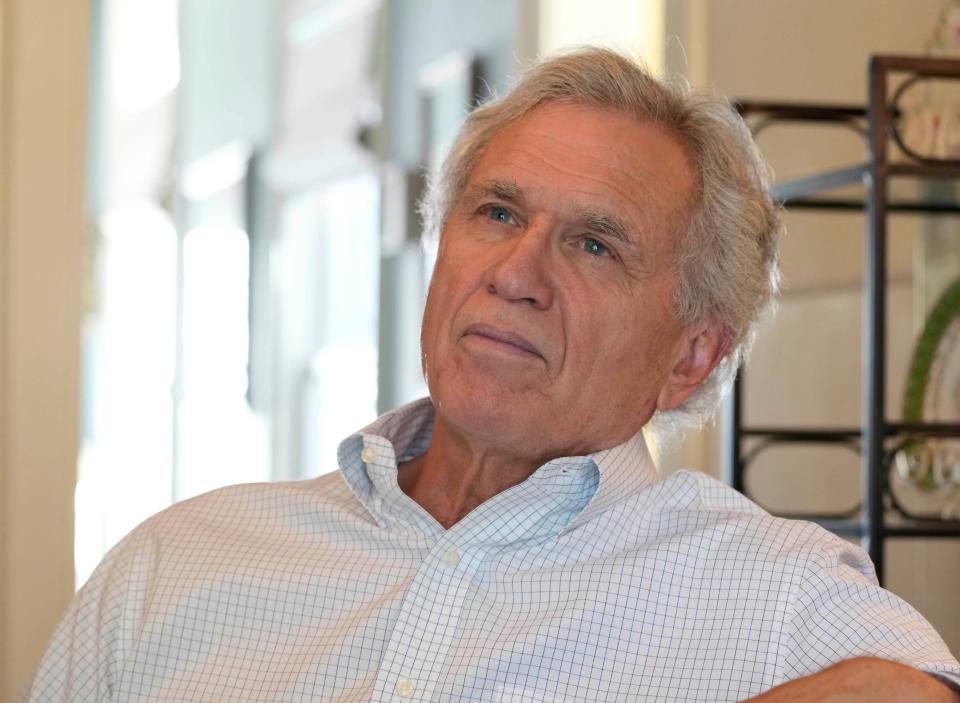Every angle of Trump's trial has been analyzed except the law. Blame the media. | Opinion
As the hush money trial of former President Donald Trump finally goes to the jury, it’s worth reflecting on the widespread failure of the media to keep in mind that a trial is not just about facts. A trial is where facts meet law.
Media coverage focused relentlessly on the seedy understory and the obvious efforts to “interfere” with the 2016 election, ignoring the conspicuous legal fault lines in this case. Gushing endlessly over the credibility of each witness, the commentary inexplicably avoided the fact that the jury could believe every word spoken by each prosecution witness and still have trouble finding its way to a conviction.
That is because the hush money indictment required Manhattan District Attorney Alvin Bragg to prove a crime within a crime. It required proof that records were falsified with the specific intent to defraud someone by concealing the commission of another crime. The prosecution had apparently floated several underlying crimes, but its main theory appeared to be that the false records were intended to disguise an illegal campaign contribution.
Don't believe democracy doom. Americans united in backing Constitutional values.
The media persistently discussed this as “election interference,” ignoring the fact that “election interference” has no legal meaning in the criminal law. Surely a candidate's effort to suppress unflattering information is not, by itself, a crime. Certainly, the prosecution had compelling evidence that records were falsified to disguise payments to Stormy Daniels. It had convincing evidence that Trump knew the true reason for the payments and that the primary purpose was to help with his reelection.
Every angle of Trump trial has been dissected except the law
But whether these payments constituted an illegal campaign contribution and whether Trump viewed them as such leads to a thicket of laws governing federal campaign contributions, none of which clearly addresses these unusual circumstances. To take a less unique situation, if someone travels at his own expense to another city to meet with a publisher in an effort to suppress or influence a story harmful to the campaign, is that a reportable contribution? Did the person who failed to recognize and report the “contribution” knowingly violate federal election law? Is the failure to report it a civil or a criminal matter?
Every angle of this sordid story has been analyzed to death except the law the jury will actually have to follow in determining whether a campaign contribution crime occurred, whether Trump had the necessary criminal intent, and whether someone (who, exactly?) was defrauded by the effort.
Although it has received virtually no media attention, several months ago the prosecution pointed to other byzantine crimes that might qualify as one Trump intended to conceal. One of these was the notion that the payments to Michael Cohen included compensation for the taxes he would owe and that this “grossing-up scheme” was intended to somehow violate New York tax law. Was that theory still alive at the close of the evidence? Is it a viable theory? Why wasn’t this worth at least minimal attention from the countless media commentators?
As a state court circuit judge, I have talked with thousands of jurors after hundreds of criminal trials. Jurors care about following the law; they understand that they must measure the facts against the law under the bright glare of the burden of proof beyond a reasonable doubt.
Are gold high tops key to Trump win? No. They show how badly out of touch he is.
Perhaps there are valid jury instructions that justify a guilty verdict in this case and, if so, perhaps the jury will find its way to that conclusion. (The jury instructions were still not public at the time of the closing arguments; at least I cannot find them on the New York court website or in any news report.)
It is regrettable the weakest of four Trump indictments tried first
How regrettable that the weakest of the four Trump indictments had to be the first. An acquittal will dramatically fuel the notion that these are all political prosecutions. A conviction will offer little clarity because – unlike the other cases – Trump apologists can plausibly say that Alvin Bragg would never have brought this case against a person whose name was not Donald Trump. And a conviction may have significant vulnerability on appeal.
Biden v. Trump II: The battle of the ages. The election rematch no one wanted.
Sadly, as this marginal case stumbles to a close, the three other Trump indictments languish, indictments based on far more coherent legal theories. Although Jack Smith’s January 6 case and the Georgia election interference case face some legal hurdles (not to mention the politics of Fani Willis’ unfathomable personal behavior), at least those cases address Trump's most significant and contemptible misconduct. Meanwhile, the Mar-a-Lago documents case – which includes compelling obstruction allegations – is a prosecutorial slam dunk if there ever was one. Yet that case is poised to go last and, tragically, maybe never. What a shame for the country.

John Franke is a retired Milwaukee County Circuit Judge and former federal prosecutor.
This article originally appeared on Milwaukee Journal Sentinel: Trump’s hush money trial is the weakest case against him
